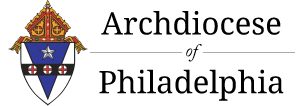September is a back to school, back to work, month as vacations end and life returns to normal. But this September is not normal for 40 persons whose commitment to the mission of the Church I deeply admire. The reason is simple. Each of them will be honored in a unique and beautiful way by Pope Francis.
Papal honors are rarely given, and when they are, they’re a source of joy and pride for the whole archdiocese. When the Holy Father bestows a pontifical award, he recognizes the generosity and exceptional dedication of a particular individual. Each such person deserves our gratitude and praise. But in granting these awards, Pope Francis also seeks to highlight for the wider believing community the importance of many different forms of Christian service. We’re all called to lives of discipleship, and many thousands of people in our local Church live their faith with equal and exemplary fidelity. They too share in these honors.
On Thursday, September 5, on behalf of Pope Francis, I’ll award to recipients the Benemerenti Medal, the Cross Pro Ecclesia et Pontifice, and membership in the pontifical knightly Orders of St. Sylvester and St. Gregory the Great at a 5 p.m. Vespers Service at the Cathedral Basilica of Sts. Peter and Paul in Center City. This is a great moment for our local Church, and I invite the public to share in it.
As chance would have it, another distinguished event will be happening the same day. Earlier this year Yale University Press published a superb new book by the historian Robert Louis Wilken, Liberty in the Things of God: The Christian Origin of Religious Freedom. An emeritus professor at the University of Virginia and chairman of the Institute on Religion and Public Life, which publishes First Things magazine, Wilken has a long record of impressive publishing and speaking credits. He’s one of our nation’s finest scholars on the growth of Christianity from the First Century onward.
Wilken will speak on the Christian roots of religious liberty at 4 p.m. on Thursday, September 5, at Villanova University’s McCullen Center for Law, Religion and Public Policy. A more timely topic can hardly be imagined. For those not attending the day’s pontifical awards in Center City, this is an important event with a gifted scholar, and I highly recommend it.
Finally, I’d like to briefly note two books that deserve much wider public attention.
The first of these is American Priest (Image) by Holy Cross Father Wilson Miscamble. This is an excellent, engaging biography of the late Father Theodore Hesburgh, former president of the University of Notre Dame and one of the most influential American religious personalities of the last century. Intellectually gifted, a friend to presidents and popes, fiercely committed to academic excellence, and equally ambitious, Hesburgh played a key role in building Notre Dame into the nationally prestigious Catholic academic institution it now is. But he was also a man of flaws, and to Miscamble’s credit, he deftly captures the “whole Hesburgh” in a fair and thorough portrait. As Father Miscamble notes:
“Guided by his conscience, Father Hesburgh sought to serve his Church, his nation, and his university according to his own lights. He contributed much in that endeavor, but there are sizable limitations in his record. Comprehending the full details of his life and work can provide valuable lessons for the present and future as to what to do and, even more importantly, what not to do. Perhaps a new generation of courageous educators in the faith might draw from the story of Theodore Martin Hesburgh an even better way to serve God, Country, and Notre Dame.”
The second book is a more demanding read. But The Idol of Our Age (Encounter Books), by Assumption College scholar Daniel J. Mahoney, is nonetheless an important and insightful text.
Mahoney’s focus is on the “humanitarian temptation” facing modern Christians, i.e., the temptation to drain Christianity of its supernatural content, reduce it to a positive system of ethics, and eventually erase God altogether from human affairs. In the process, writes Mahoney, “Christianity is shorn of any transcendental dimension and becomes an instrument of promoting egalitarian social justice, usually in the name of an ideological conception of the poor . . .” What remains is “the secular religion of our age,” a form of idolatry in the name of Man that inevitably crushes the dignity of real men and women.
Mahoney’s treatments of Orestes Brownson, Vladimir Soloviev, Alexander Solzhenitsyn, and Jürgen Habermas are excellent; so is the book’s foreword by the great French Catholic political philosopher Pierre Manent; so is the inclusion of a 1944 essay by Aurel Kolnai, “The Humanitarian versus the Religious Attitude.” The one serious flaw in the book is the author’s needless critique of the current pontificate’s social teaching. It weakens an otherwise vigorous work; but while it damages the author’s argument, Mahoney’s essential message – that recent Catholic thought has been undermined by a humanitarian impulse which forgets that all men and women are wounded and divided by sin – remains true.
Which makes the witness of men and women of character – like the ones the Holy Father honors on September 5 – all the more vital.
# # #
Editor’s Note: Columns will be published each week on www.CatholicPhilly.com and can also be found at https://archphila.org/archbishop-chaput/statements/statements.php.






